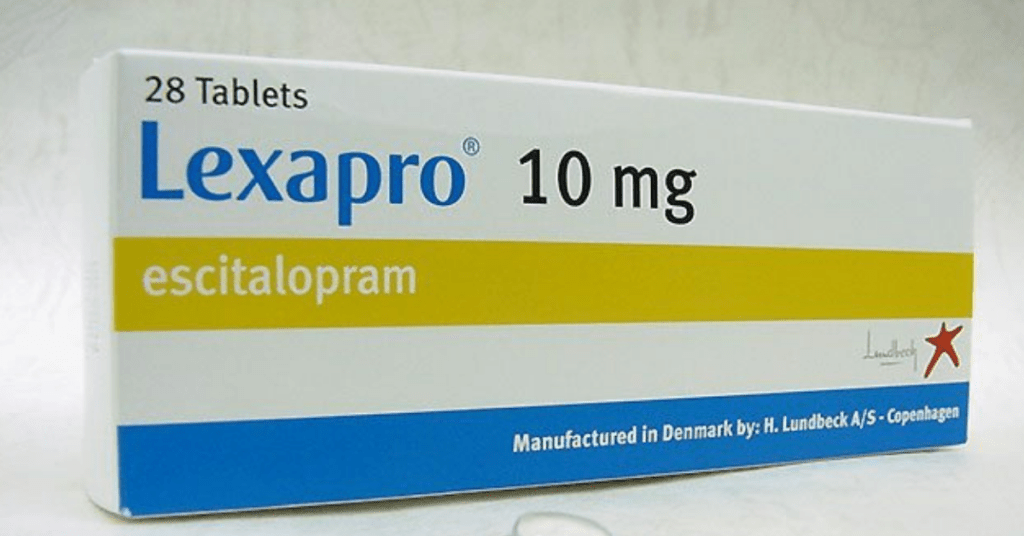Lexapro is a medication used to treat anxiety, panic disorder, major depressive disorder (MDD), and social anxiety. It is an antidepressant of the selective serotonin reuptake inhibitor (SSRI) class. Lexapro belongs to a drug class known as psychotropic medications that work by blocking the reabsorption of serotonin in the brain. This chemical messenger has many functions in your body, including controlling mood and appetite. When you take this medication regularly, it increases levels of serotonin available to brain cells which can improve symptoms such as depression or obsessive-compulsive behaviors.
Contents
What Is Lexapro?
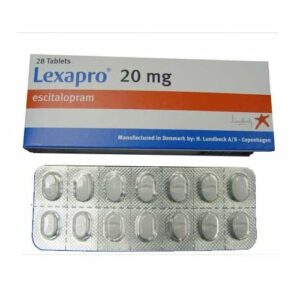 Lexapro is a medication that belongs to the class of selective serotonin reuptake inhibitors (SSRIs). It is used for the treatment of depression and anxiety disorders. This medication is available as a generic drug and as the brand-name medication Celexa. Lexapro is available in tablet form and is taken by mouth.
Lexapro is a medication that belongs to the class of selective serotonin reuptake inhibitors (SSRIs). It is used for the treatment of depression and anxiety disorders. This medication is available as a generic drug and as the brand-name medication Celexa. Lexapro is available in tablet form and is taken by mouth.
This medication is generally very well tolerated, however, there are a number of side effects that may occur. The most common include nausea, headache, and insomnia. If you experience any serious side effects while taking Lexapro it is advised to contact your doctor immediately.
Some people take this medication for a long period of time, while others only take it for a short period. It is important to speak with your doctor about the best way to take Lexapro for you.
Lexapro should not be taken by people who are allergic to escitalopram or citalopram, the active ingredients in this medication. It should also not be taken by people who have taken an MAO inhibitor within the last 14 days. This includes medications such as Nardil (phenelzine) and Parnate (tranylcypromine).
This medication can interact with other drugs, so it is important to tell your doctor about all medications you are taking, including over-the-counter medications and supplements.
What Does Lexapro Treat?

This medication usually treats a number of conditions, including:
Depression
This medication helps to alleviate the symptoms of depression. It is not a cure for this condition, but it does help to improve many symptoms such as sadness and loss of interest in activities.
Anxiety Disorders
This medication also helps to ease symptoms of anxiety, such as panic attacks and excessive worrying.
Obsessive-Compulsive Disorder (OCD)
People who have OCD will experience urges or thoughts that they cannot control even though the thought is irrational. Lexapro can help alleviate this condition by decreasing these obsessive thoughts and compulsive behaviors. This medication does not cure this disorder, but it does treat some of the major symptoms associated with OCD.
Post Traumatic Stress Disorder (PTSD)
This medication helps people recover from PTSD following a traumatic event in their lives such as war combat, rape, or abuse. It may also be used for other types of trauma including natural disasters or car accidents. Generally, Lexapro is taken on an “as-needed” basis to help a person manage their symptoms during these stressful situations.
Panic Disorder
It is also sometimes used to treat other conditions not listed here. Please consult with your doctor if you have any questions about whether Lexapro can help treat your specific condition.
What Symptoms Does It Treat?

This medication helps to treat a number of symptoms associated with the conditions listed above. These symptoms may include:
Depression
- Sadness
- Loss of interest in activities
- Feeling worthless or guilty
- Insomnia or excessive sleepiness
- Restlessness or feeling slowed down
Anxiety Disorders
- Excessive worry
- Tension headaches and migraines
- Panic attacks obsessive thoughts and compulsions related to OCD)
Post Traumatic Stress Disorder (PTSD)
Symptoms that may occur after a traumatic event such as: –
- Flashbacks
- Nightmares
- Difficulty concentrating
- Feeling numb or detached from others
- Irritability or angry outbursts
- Hypervigilance (constantly being on the lookout for danger)
- Overwhelming guilt or shame related to the event
- Substance abuse problems
How Does Lexapro Work?
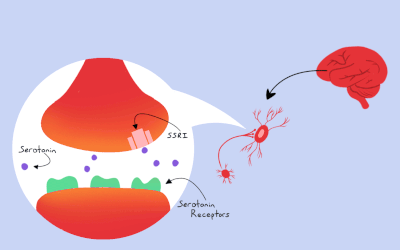
This medication works by blocking the reuptake of serotonin in the brain. Serotonin is a neurotransmitter that helps to regulate mood, appetite, and sleep. By blocking the reuptake of this chemical, Lexapro helps to increase its levels in the brain, which can help to improve symptoms of depression or anxiety. It also helps to increase chemicals in the brain that help people recover from trauma.
This medication is part of a class of antidepressants known as selective serotonin reuptake inhibitors (SSRIs). Many doctors prefer this type of antidepressant since it acts on just one chemical in the brain rather than several at once. This helps to reduce side effects and makes it easier for your body to adjust to the medication.
How Long Will It Take To Work?
It may take several weeks before you start to see an improvement in your symptoms. It is also possible for the medication to take several months before it begins to work. During this time, you may experience symptoms such as headache or nausea that are temporary side effects of Lexapro and will go away after your body adjusts.
Lexapro Dosage and How to Take It?
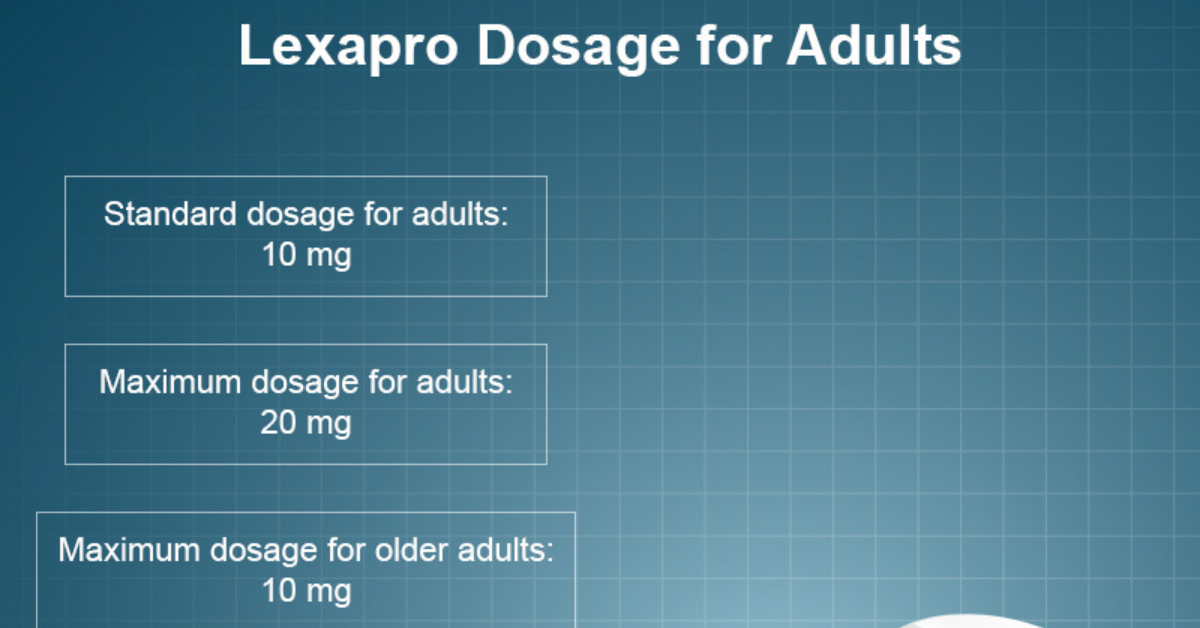
The usual dosage of Lexapro is 20 mg per day. However, your doctor may start you on a lower dose if you are new to taking this medication. The dose can be increased as needed, but it is important not to exceed 60 mg per day. This medication should be taken once daily, either in the morning or evening. It can be taken with or without food.
If you forget to take your dose of Lexapro one day, take it as soon as you remember. If it is almost time for your next dose, skip the missed dose and go back to your regular dosing schedule. Do not take two doses of Lexapro at once in order to make up for a missed dose.
You can also ask your doctor if it is okay to split the daily dosage twice a day, rather than taking one large dose each morning or evening. This may help you remember to take this medication on time more easily and allows you some flexibility when you need to go through strong emotions during stressful times, such as before an exam or other important event.
Benefits of Lexapro

There are many benefits of Lexapro including: –
Effectiveness
Lexapro has been proven to be effective in the treatment of depression, panic disorder, and social anxiety. The FDA approved Lexapro for use by adults with major depressive disorder (MDD) who are 18 years or older back in 2006; it is currently used as a first-line antidepressant medication since several studies have shown that Lexapro works just as well as other more traditional antidepressants such as Prozac (fluoxetine). It also appears to work better than a placebo when taken along with cognitive behavioral therapy. Most people taking this drug will experience some improvement within one to two weeks although full benefits may take up to six weeks before they can really notice improvement. Efficacy means how well a drug works to cure or relieve symptoms.
Long-Term Effects
Lexapro has been shown to be safe and well-tolerated for up to one year, making it an option for long-term treatment of depression.
Safety
Lexapro is generally considered to be a safe medication with relatively few side effects; the most common ones are dry mouth, tiredness/drowsiness, nausea, sexual dysfunction, and weight gain. However, as with any medication, there is always the potential for side effects so it’s important that you talk to your doctor if you experience any problems while taking Lexapro.
Cost
If you have health insurance, Lexapro may be covered by your plan. If not, the cost of a prescription may vary depending on your insurance plan.
Possible Side Effects of Lexapr
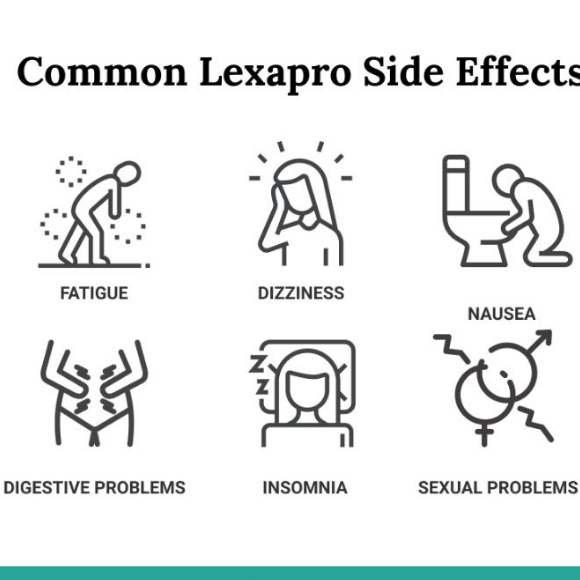
There are a number of potential side effects with Lexapro including: –
Dry Mouth (Xerostomia)
Occurs in about 30% of people taking this drug but usually improves over time if you can drink more fluids and use sugarless candy or gum to stimulate saliva production. If not treated, dry mouth may lead to tooth decay and increased risk of cavities; see the dentist regularly while on this medicine since he/she can help treat your dry mouth.
Tiredness/Drowsiness
This is one of the most common side effects and tends to occur in about 20% of those taking this drug; it usually goes away after a couple of weeks but if you experience extreme drowsiness, consult with your doctor since he/she may want to change medications or adjust dosages.
Nausea
It May occur in about 20% of people and usually improves within a few weeks; if it persists, contact your doctor as he/she may want to adjust your dose. Try taking the medication with food or drink and space out doses throughout the day rather than taking them all at once.
Sexual Dysfunction
This side effect occurs in both men and women and can include problems such as reduced sexual desire, difficulty achieving orgasm, or erectile dysfunction (in men). If this is a problem for you, talk to your doctor who may be able to switch you to another type of antidepressant that doesn’t have these sexual side effects.
Weight Gain
This is another potential side effect that can occur in both men and women; it’s not clear why some people gain weight on this medication while others don’t. If you do start to put on extra pounds, talk to your doctor who may be able to adjust your dosage or switch you to a different antidepressant.
Suicidal Thoughts
Although rare, this is a potentially serious side effect and if you experience any suicidal thoughts or behaviors, contact your doctor immediately.
Alternatives of Lexapro
There are different alternatives to Lexapro.
- Prozac (fluoxetine)
- Zoloft (sertraline)
- Celexa (citalopram)
- Paxil CR (paroxetine CR)
Each of these medications has a slightly different chemical structure and may work better or worse for you than Lexapro. Talk to your doctor if you’re not sure which antidepressant is right for you.
Conclusion
In conclusion, Lexapro is a safe and effective medication that can be used for the long-term treatment of depression. It has been shown to be as effective as other more traditional antidepressants and appears to work better than a placebo when taken with cognitive behavioral therapy. There are some potential side effects, but most people don’t experience any problems while taking this drug. If you have health insurance, it may cover Lexapro in your plan; if not, the cost of a prescription may vary depending on your insurance plan. There are different alternatives to Lexapro so talk to your doctor if you’re not sure which antidepressant is right for you.
If you are looking for affordable Online Counseling MantraCare can help: Book a trial therapy session
